Torrey A. Creed
An Automated Quality Evaluation Framework of Psychotherapy Conversations with Local Quality Estimates
Jun 15, 2021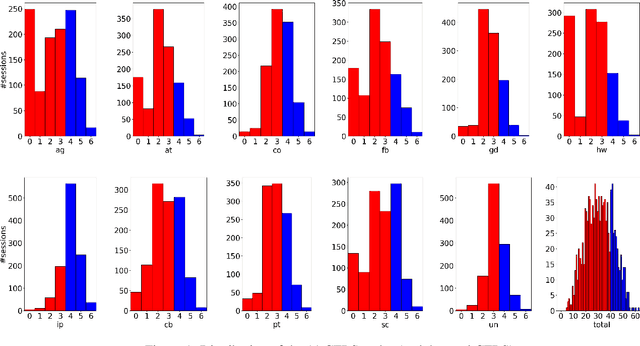



Abstract:Computational approaches for assessing the quality of conversation-based psychotherapy, such as Cognitive Behavioral Therapy (CBT) and Motivational Interviewing (MI), have been developed recently to support quality assurance and clinical training. However, due to the long session lengths and limited modeling resources, computational methods largely rely on frequency-based lexical features or distribution of dialogue acts. In this work, we propose a hierarchical framework to automatically evaluate the quality of a CBT interaction. We divide each psychotherapy session into conversation segments and input those into a BERT-based model to produce segment embeddings. We first fine-tune BERT for predicting segment-level (local) quality scores and then use segment embeddings as lower-level input to a Bidirectional LSTM-based neural network to predict session-level (global) quality estimates. In particular, the segment-level quality scores are initialized with the session-level scores and we model the global quality as a function of the local quality scores to achieve the accurate segment-level quality estimates. These estimated segment-level scores benefit theBERT fine-tuning and in learning better segment embeddings. We evaluate the proposed framework on data drawn from real-world CBT clinical session recordings to predict multiple session-level behavior codes. The results indicate that our approach leads to improved evaluation accuracy for most codes in both regression and classification tasks.
Automated Quality Assessment of Cognitive Behavioral Therapy Sessions Through Highly Contextualized Language Representations
Feb 23, 2021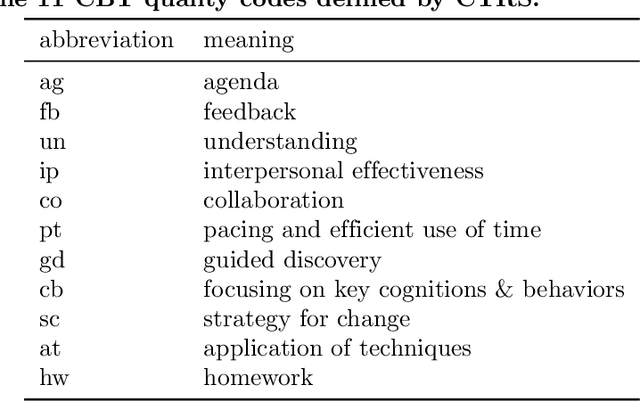


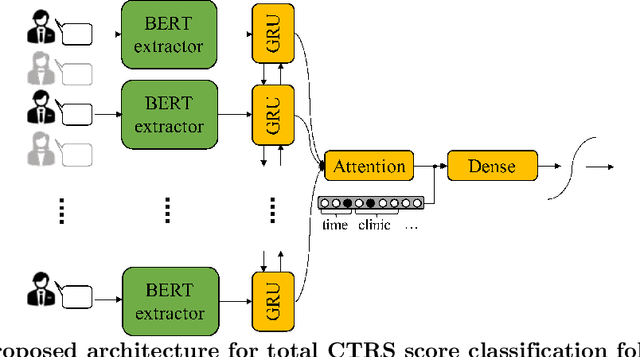
Abstract:During a psychotherapy session, the counselor typically adopts techniques which are codified along specific dimensions (e.g., 'displays warmth and confidence', or 'attempts to set up collaboration') to facilitate the evaluation of the session. Those constructs, traditionally scored by trained human raters, reflect the complex nature of psychotherapy and highly depend on the context of the interaction. Recent advances in deep contextualized language models offer an avenue for accurate in-domain linguistic representations which can lead to robust recognition and scoring of such psychotherapy-relevant behavioral constructs, and support quality assurance and supervision. In this work, a BERT-based model is proposed for automatic behavioral scoring of a specific type of psychotherapy, called Cognitive Behavioral Therapy (CBT), where prior work is limited to frequency-based language features and/or short text excerpts which do not capture the unique elements involved in a spontaneous long conversational interaction. The model is trained in a multi-task manner in order to achieve higher interpretability. BERT-based representations are further augmented with available therapy metadata, providing relevant non-linguistic context and leading to consistent performance improvements.
Feature Fusion Strategies for End-to-End Evaluation of Cognitive Behavior Therapy Sessions
May 15, 2020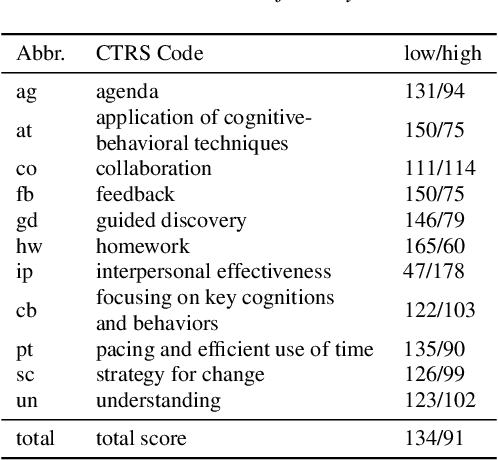
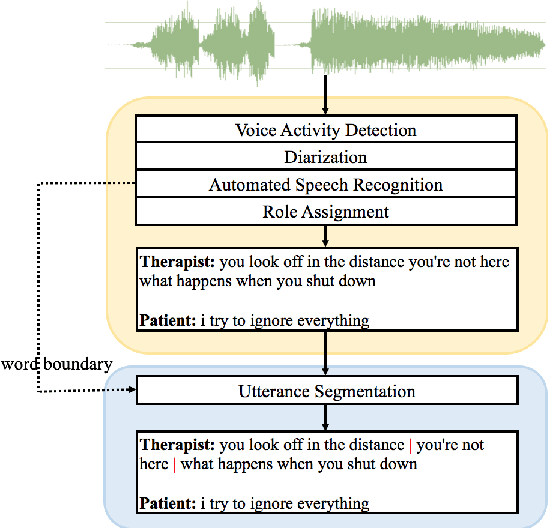
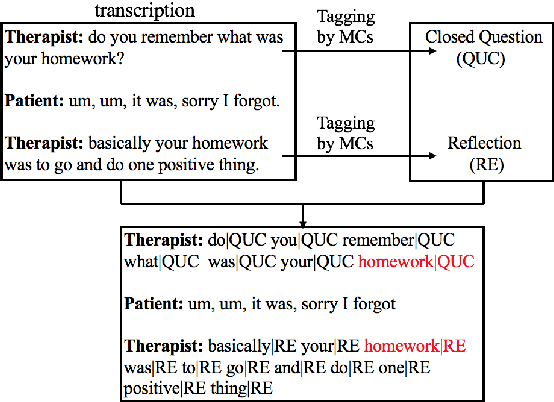
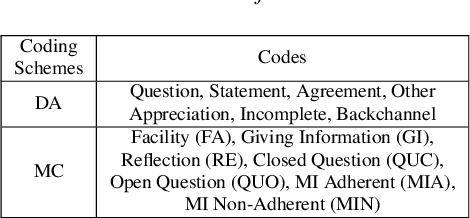
Abstract:Cognitive Behavioral Therapy (CBT) is a goal-oriented psychotherapy for mental health concerns implemented in a conversational setting with broad empirical support for its effectiveness across a range of presenting problems and client populations. The quality of a CBT session is typically assessed by trained human raters who manually assign pre-defined session-level behavioral codes. In this paper, we develop an end-to-end pipeline that converts speech audio to diarized and transcribed text and extracts linguistic features to code the CBT sessions automatically. We investigate both word-level and utterance-level features and propose feature fusion strategies to combine them. The utterance level features include dialog act tags as well as behavioral codes drawn from another well-known talk psychotherapy called Motivational Interviewing (MI). We propose a novel method to augment the word-based features with the utterance level tags for subsequent CBT code estimation. Experiments show that our new fusion strategy outperforms all the studied features, both when used individually and when fused by direct concatenation. We also find that incorporating a sentence segmentation module can further improve the overall system given the preponderance of multi-utterance conversational turns in CBT sessions.
 Add to Chrome
Add to Chrome Add to Firefox
Add to Firefox Add to Edge
Add to Edge